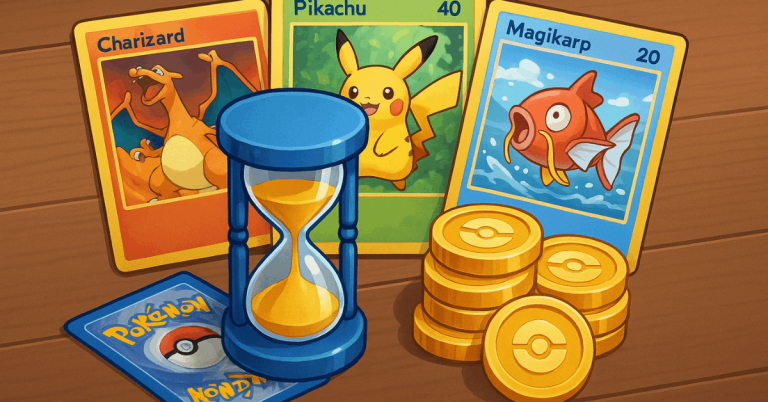Discount cruise deals save big when it comes to planning a memorable getaway. Cruising offers an all-in-one experience with entertainment, dining, and stunning destinations.
This article highlights tips for finding the best deals and stretching your travel budget. Start planning your next adventure without breaking the bank.
Why Finding Deals Matters in Travel?
The travel industry thrives on offering unique experiences to people of all ages. Deals, especially discounted ones, help make these experiences affordable.
They allow you to explore destinations while keeping your budget in check. Finding the right deal can mean saving big on luxury features or extra perks.
Planning ahead or during special seasons can increase your chances of better rates. Affordable options make travel a more inclusive and rewarding choice.
Pricing Dynamics in Travel Options
Travel costs change based on timing and demand. Knowing when and where to book can help you save more.
How Pricing Works: Peak Vs. Off-Peak Seasons?
Prices tend to rise during holidays and popular vacation periods. Off-peak times, like late fall or early spring, usually offer more affordable deals.
Special events or festivals in destinations can also lead to increased rates. On the other hand, choosing less-crowded times ensures better pricing and fewer crowds.
The cost also depends on your selected route, onboard services, and duration. Flexible travelers often find the best bargains.
Factors That Impact Pricing
Pricing depends on several factors, each influencing what you’ll pay. Below are key aspects to consider:
- Destination: Popular spots generally cost more, while less-traveled ones offer better savings.
- Duration: Shorter trips are often cheaper, but longer ones may include more value.
- Amenities: Access to luxury features like spas or suites adds to the cost.
- Season: Timing, such as holiday peaks, directly affects pricing.
- Demand: Higher demand means fewer discounts available.
Best Times to Book a Trip for Maximum Savings
Booking at the right time can help you save significantly. Prices often vary based on demand, availability, and season. Planning for popular travel periods often secures better rates.
On the other hand, waiting until close to the departure date can offer last-minute bargains.
Off-season travel offers lower costs and fewer crowds, ideal for budget travelers. Checking trends for your destination helps you find the best booking time.
Advantages of Early Bird vs. Last-Minute Bookings
Timing your booking can bring different benefits. Below are the advantages of each approach:
Early Bird Benefits:
- Access to exclusive deals and promotions for early bookings.
- More options for cabins, dates, and amenities.
- Peace of mind by securing a reservation in advance.
Last-Minute Benefits:
- Significant discounts on unsold spots.
- Great for flexible travelers who can leave on short notice.
- Ideal for those looking for a quick and spontaneous getaway.
How to Find Discount Travel Deals?
Finding the right deal often starts online. Websites like Expedia, Kayak, and CruiseCritic are excellent for comparing prices and offers.
These platforms let you filter destinations and dates for better accuracy. Checking multiple sites ensures you’re not missing out on hidden savings.
Some tools even send alerts for price drops or exclusive promotions. Reviewing these platforms can provide valuable insights into what’s worth booking.
Tips on Using Travel Agents or Direct Bookings
Travel agents and direct bookings can help simplify the process. Here’s how to make the most of these options:
Travel Agents:
- Agents often have access to group discounts or exclusive offers.
- They can handle complicated itineraries for you.
- Personalized advice saves time and reduces stress.
Direct Bookings:
- Booking directly through travel companies may provide extra perks like free upgrades.
- Loyalty programs often offer discounts or rewards.
- You can confirm the details immediately without intermediaries.
Importance of Flexibility in Dates and Destinations
Being flexible is the key to finding better deals. Here are ways flexibility benefits you:
Dates:
- Traveling in the off-season often ensures lower rates.
- Midweek departures are usually cheaper than weekend ones.
Destinations:
- Lesser-known locations often cost less than popular ones.
- Opting for a destination with fewer restrictions helps keep expenses down.
Benefits of Choosing Repositioning Trips
Repositioning trips are one-way journeys when ships move between regions for seasonal changes. These trips often feature longer itineraries at lower prices.
They offer unique routes and fewer crowds. Budget travelers benefit from reduced costs and an unforgettable experience.
Examples of Common Repositioning Routes
Repositioning trips usually follow unique routes. Here are some common examples:
- Transatlantic Journeys: Between Europe and the Americas.
- Pacific Crossings: Between Asia and North America.
- Seasonal Changes: Alaska to warmer destinations like Mexico or Hawaii.
- Mediterranean Shifts: Between Northern and Southern Europe.
Leveraging Promotions and Discounts
Cruise lines often run special promotions to attract travelers. Below are some common examples:
- Early Booking Deals: Discounts for securing spots months in advance.
- Last-Minute Sales: Lower prices to fill unsold rooms.
- Seasonal Offers: Reduced rates during off-peak periods.
- Onboard Credits: Free spending money is included in your package.
How do you Qualify for Group Rates, Loyalty Discounts, or Regional Specials?
Understanding how to secure discounts can save you big on overall costs:
- Group Rates: Traveling in large groups unlocks special prices and perks.
- Loyalty Programs: Frequent travelers earn exclusive benefits and discounts.
- Regional Specials: Some companies offer discounts based on residency.
Additional Cost Considerations
Trips often include extra expenses beyond the ticket price. These can involve shore excursions, onboard spending, and service fees like gratuities.
Alcoholic beverages and specialty dining also add to costs. Planning for these extras helps you budget better.
Strategies to Minimize Extra Costs
Reducing added expenses is possible with careful planning. Below are some tips:
- DIY Excursions: Plan your own activities instead of booking through companies.
- Prepaid Gratuities: Paying in advance often costs less.
- Onboard Spending Limits: Avoid unnecessary purchases to save money.
Planning and Booking Strategies
Planning ahead ensures a smoother travel experience. Follow these steps to prepare:
- Set a Budget: Decide how much you’re willing to spend.
- Pick the Right Dates: Be flexible to find lower prices.
- Choose the Destination: Look for seasonal routes or hidden gems.
- Research Deals: Use comparison tools or consult travel agents.
- Read Reviews: Check customer feedback for reliability and quality.
- Book Early or Last-Minute: Depending on your flexibility, find the best time.
Understanding Contract Terms and Cancellation Policies
Carefully reviewing the terms avoids unexpected issues. Look for flexible cancellation policies that allow refunds or changes.
Pay attention to fees for adjustments or missed payments. Knowing these terms gives you better control over your plans.
Final Thoughts: Save Big on Your Next Adventure
Planning wisely helps you maximize savings while enjoying a great trip. Be flexible, research well, and prioritize budget-friendly options.
Understanding hidden costs and using the right tools makes the process easier. Start planning now to save big on your next adventure and create lasting memories.












